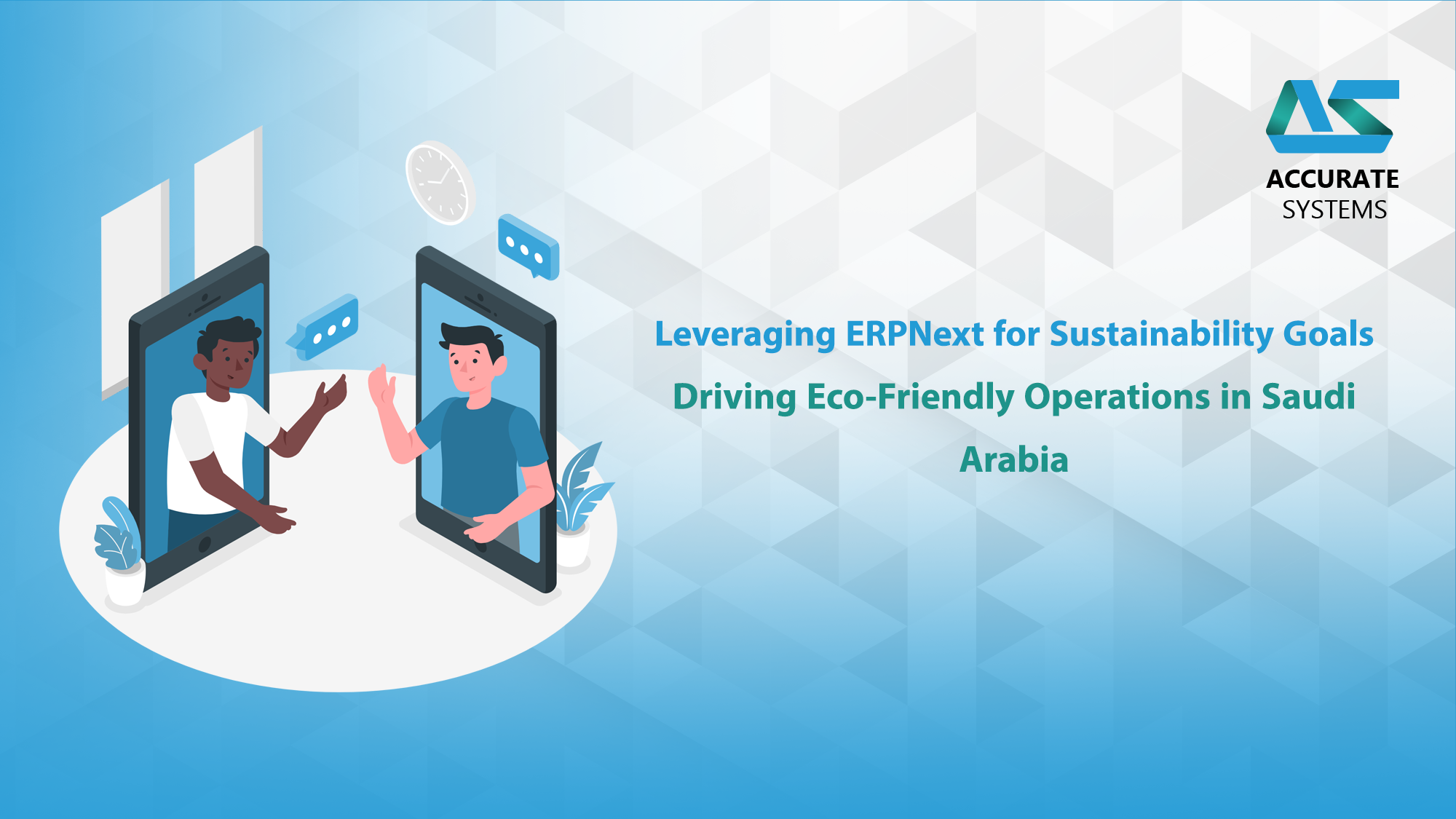As the global shift toward sustainable practices accelerates, Saudi Arabia is embracing its Vision 2030 goals to achieve economic diversification and environmental sustainability. Businesses in the Kingdom are adopting advanced tools to align with these objectives, with ERPNext, a leading open-source ERP platform, playing a vital role. This article highlights how ERPNext helps organizations achieve sustainability by monitoring energy usage, managing waste, tracking carbon emissions, and enhancing ESG (Environmental, Social, and Governance) reporting.
The Role of ERPNext in Achieving Sustainability Goals
Sustainability has become a priority for businesses worldwide, and ERPNext offers a range of features to help organizations meet their environmental commitments. By providing tools for real-time monitoring, data analysis, and compliance tracking, ERPNext empowers businesses to:
- Optimize Resource Utilization: Ensure efficient use of energy and materials.
- Minimize Environmental Impact: Reduce waste and carbon emissions.
- Enhance ESG Reporting: Improve transparency and regulatory compliance.
These capabilities align seamlessly with Vision 2030’s emphasis on fostering sustainable and eco-friendly business practices.
Key Features of ERPNext Supporting Sustainability
1. Energy Usage Monitoring
ERPNext’s energy management tools enable businesses to track and optimize energy consumption, offering benefits such as:
- Real-Time Insights: Identify inefficiencies and reduce energy wastage.
- Cost Optimization: Lower utility expenses through smarter energy usage.
- Sustainability Metrics: Align energy goals with broader organizational sustainability targets.
For instance, manufacturers can track machine-specific energy usage to identify areas for improvement and implement energy-saving strategies.
2. Waste Management
ERPNext facilitates effective waste management, helping businesses minimize their environmental footprint. Features include:
- Waste Tracking: Monitor and analyze waste generated during operations.
- Regulatory Compliance: Ensure proper disposal practices in line with environmental regulations.
- Recycling Support: Track recyclable materials to promote sustainability initiatives.
This is particularly valuable in sectors like construction, where waste management is a significant operational challenge.
3. Carbon Emission Tracking
ERPNext enables businesses to measure and manage their carbon footprint effectively. Key benefits include:
- Emission Monitoring: Track emissions from energy usage, logistics, and production.
- Reduction Goals: Set and achieve targets for carbon footprint reduction.
- Enhanced ESG Performance: Provide reliable data for ESG reporting and certifications.
By integrating carbon tracking with operational data, ERPNext helps businesses implement strategies to achieve net-zero emissions.
Streamlined ESG Reporting with ERPNext
In Saudi Arabia and globally, ESG reporting has become a key requirement for businesses. ERPNext simplifies this process by:
- Centralized Data Management: Consolidating all ESG metrics in a single platform.
- Automated Reporting: Generating accurate ESG reports for stakeholders and regulatory authorities.
- Compliance Assurance: Aligning operations with local and international sustainability standards.
These features build trust among investors, customers, and regulators, enhancing a company’s reputation and competitive edge.
ERPNext and Vision 2030: A Perfect Alignment
ERPNext’s capabilities align closely with the objectives of Vision 2030, supporting Saudi Arabia’s drive toward sustainable economic growth. Key contributions include:
- Encouraging Green Practices: Enabling businesses to implement eco-friendly processes.
- Fostering Economic Diversification: Supporting growth in various non-oil sectors, such as manufacturing and logistics.
- Driving Digital Transformation: Leveraging technology to improve efficiency and sustainability.
By integrating ERPNext into their operations, businesses can actively contribute to the Kingdom’s ambitious sustainability goals.
Challenges and Solutions
Adopting ERPNext for sustainability initiatives may present challenges, but these can be effectively addressed:
- Data Integration Issues: ERPNext’s modular design ensures seamless integration of sustainability data from multiple sources.
- Training and Adoption: Comprehensive training programs can help employees maximize ERPNext’s features.
- Initial Investment: While ERP implementation requires upfront costs, the long-term benefits of cost savings, efficiency, and compliance make it a worthwhile investment.
Case Studies: ERPNext Driving Sustainability
1. Manufacturing Industry
A manufacturing company in Saudi Arabia used ERPNext to monitor energy consumption, resulting in a 15% reduction in energy costs and a significant decrease in emissions.
2. Retail Sector
A retail chain implemented ERPNext’s waste management features, reducing packaging waste by 20% and improving recycling rates.
Conclusion
ERPNext serves as a powerful ally for businesses in Saudi Arabia striving to meet their sustainability goals. With features like energy monitoring, waste management, and carbon tracking, it supports eco-friendly operations and robust ESG reporting. As Vision 2030 continues to guide the Kingdom’s transformation, ERPNext offers the tools necessary to thrive in a sustainable, digitally driven market.
For businesses aiming to achieve operational excellence while promoting sustainability, ERPNext provides the ideal platform to navigate the future responsibly and effectively.

